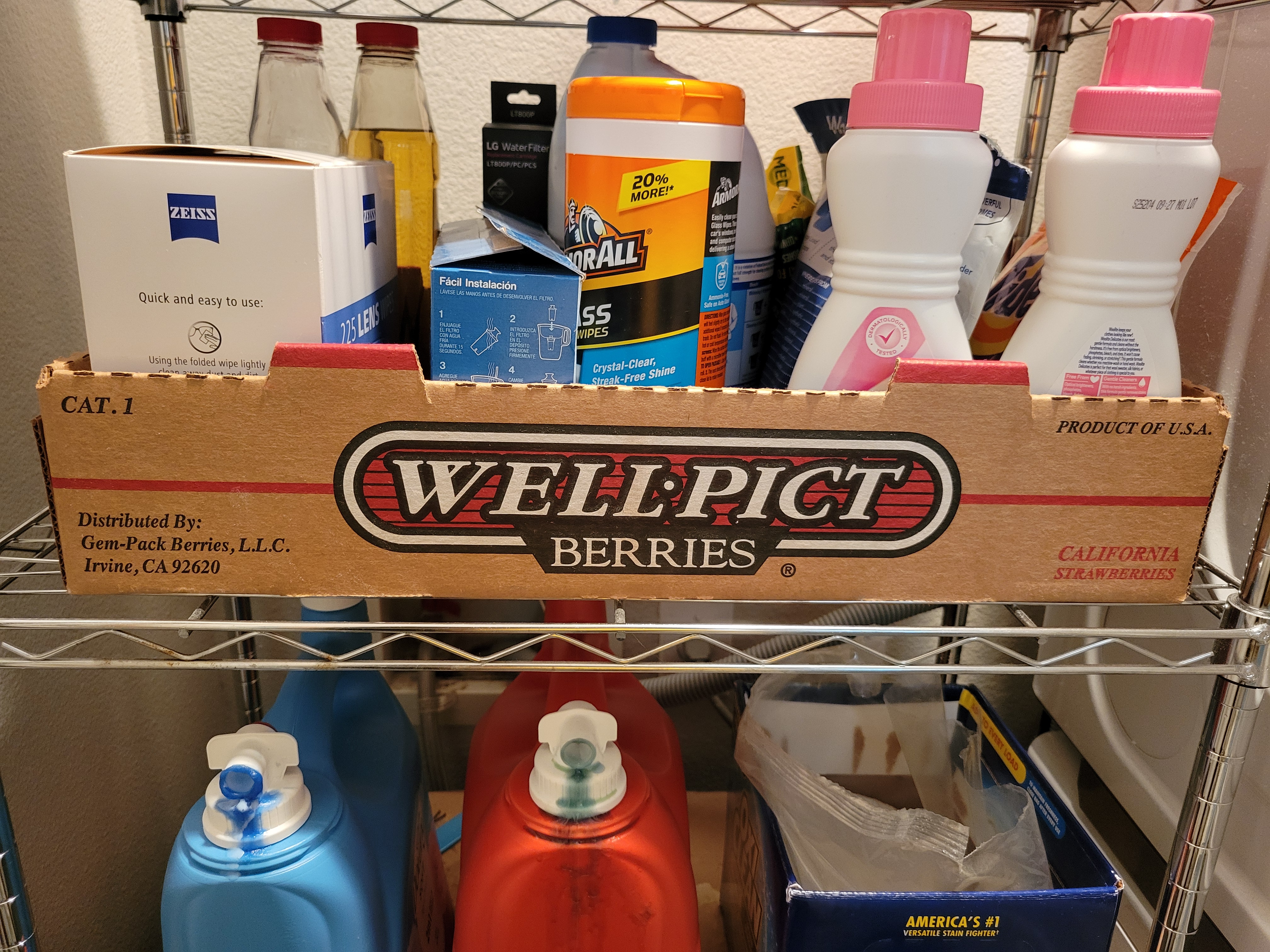Cheap and Cheerful
If you shop at Costco you are likely aware that they give away boxes of many shapes and sizes. Many of these are reinforced to protect delicate contents such as ripe fruits. And most have at least one low-cut side. These qualities make them excellent impromptu shelf organizers, say for a metro rack.

The author of 2-Second Lean has a YouTube channel that includes virtual tours of lean organizations. The best one I’ve seen is the (second) tour of Premier Group. The video pertains to manufacturing, but even for those of us in software development it is chock full of ideas. A strong emphasis on culture and growth of people runs through it start to finish. It’s well worth a look.
Owner Bernard Powell uses two noteworthy phrases that I want to map into the world of software development:
- Cheap and Cheerful: Improvements that don’t cost a lot. For example, recycling discard material into improvements. This is relatively easy with respect to your desk or office area, or a common work room. What about in software? Small meta-programming improvements may qualify. Simple improvements in your daily kit, like improved editor keybindings may qualify. Simple automation has to be the big example. If you have done it for a third time, ask yourself whether you can automate it?
- Walk-Away Standards: How should something look when you are done with your work? That’s one thing in a physical environment like a factory floor. But how does it work in software? Standards around documentation, code review, testing, code formatting, etc. may be the right analogy here. How can you leave things so that you or a colleague can pick up right where you left off without difficulty, and without a lot of work on your part.
He also emphasizes the utility of scoreboards by analogy with sports: If the stadium had no scoreboard, nobody would come to watch the game. So keep track of the winning and losing.
What prevents us from applying these deas to greater effect in software development?
Some developers want to focus on coding and don’t want to engage fixing process. Some object to the rate of change resulting from continuous improvement. Some think that their processes are too complex and variable for focused improvement. I don’t believe it.
It’s relatively easy for developers to understand that software developed but not deployed is inventory, one of the standard 8 wastes.
I want to map this completely into software development, in cheap and cheerful fashion.